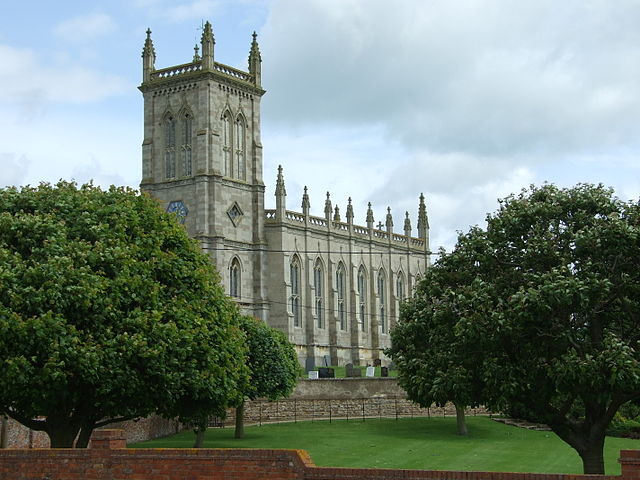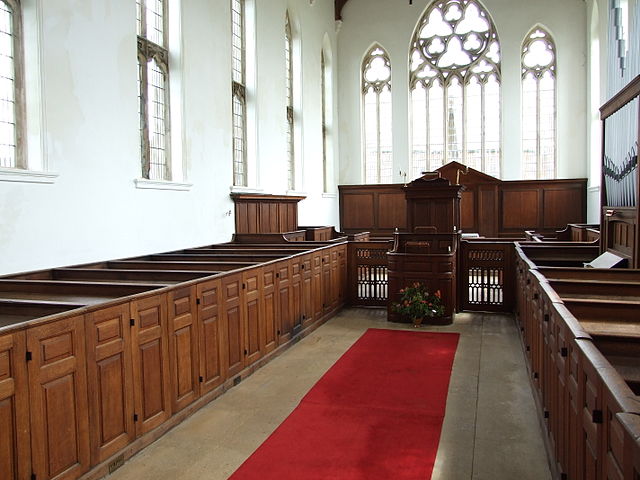Historically, in its first few centuries, portions of the Church of England appear to have been somewhat iconoclastic. I recall one of the Homilies in the Book of Homilies had an iconoclastic theme, and there were tragic incidents of cultural vandalism involving the destruction of stained glass windows, gargoyles and grotesques and other decorations on at least one cathedral, and other churches of gothic provenance. There was also the destruction of the relics of St. Thomas Becket. That said, its not clear to me to what extent these acts were actually perpetrated by the Church of England, as opposed to Puritan malcontents, dissenters and roundheads during the English Civil War. It is obvious however that by the 19th century, the tide had changed, with surviving medieval iconography carefully preserved, along with the commissioning of exquisite new iconography during the Victorian and Edwardian eras in the Gothic Revival architecture that so beautifully accompanied the Romantic period in art, literature, sculpture and especially, classical music, and which also became for a time the prevailing style of ecclesiastical architecture in the West.
Now, with Byzantine icons in the altar of Westminster Abbey, I find myself hard pressed to think of any other Protestant churches with iconographic and architectural splendor on a par with the Church of England (the Scandinavian Lutheran churches do come to mind, especially the gorgeous frescoes in some of the round churches in Sweden and Denmark; speaking of Denmark, I once visited the beautiful Anglican parish near Tivoli gardens, in 2001, which had a pair of lovely elderly Anglo-Danish ladies welcoming visitors; given that the Angles came from an area on the Danish-German frontier, and that much of England and parts of what is now Scotland, and I think the Diocese of Sodor and Man*, were later ruled by the Danes, I particularly loved that church). The Church of England also does a very good job in accommodating low church Protestants who might resent iconography, as there are plenty of beautiful parishes with plain windows and functional decoration, for example King’s Norton Church in Leicestershire, which has a particularly lovely exterior.


* Being a railfan since childhood, and being from the Central Valley of California, which for most of the year is characterized by dry grass, except in the late winter and early spring, when we enjoyed green grass and golden poppies, my first introduction to the stunning beauty of British trains and the gorgeous green British countryside was a complete collection of Rev. W. Audrey’s railway stories, featuring such classics as Thomas the Tank Engine, James the Red Engine (who was beautiful but vainglorious), Gordon the Big Express Engine, Henry, who was seriously unreliable and kind of a jerk, and lovable Edward, who was in the first story he wrote, an old but reliable engine with admirable humility and maturity, as well as a thinly disguised version of the Ffestinog narrow gauge railway in Wales, and other related railways connecting to the main line on the fictional island of Sodor, which of course took its name from the Diocese of Sodor and Man, although in reality Sodor referred to the Outer Hebrides, which like Man were ruled at different times by the Norse and the Irish, being somewhat of a bone of contention, like Finland’s alternating Swedish and Russian domination.
Rev. W. Audrey, who wrote the stories, was a lifelong Anglican priest, and the combination of beautiful artwork (which with its sleek, elegant and colorful British trains and emerald green hills looked quite alien to a valley boy accustomed to dusty Santa Fe and Southern Pacific freight trains punctuated on rare occasions by a boxy Amtrak regional train) and Christian moral lessons struck a chord with me. Its a pity that it has been commercialized beyond all recognition, with the miserable Shining Time Station on PBS and more recently a number of childrens’ films which look about as appealing as acute radiation poisoning.



